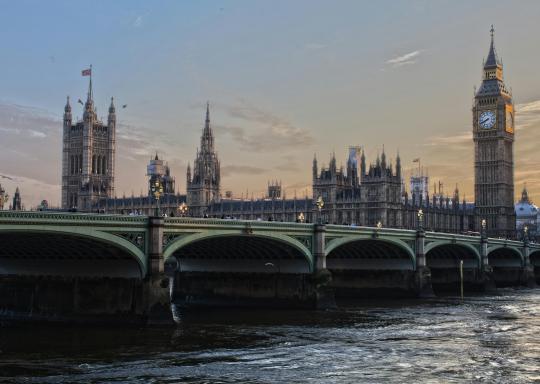New Disability Minister criticised for ‘lack of ambition’
The full transcript of the House of Commons debate can be found on Parliament's website, and the live stream (with BSL interpretation) is available on YouTube. A copy of the full DR UK briefing sent in preparation for the debate can be found on our website.
Marsha de Cordova MP called the debate to consider UN International Day of Persons with Disabilities. She outlined the key issues affecting Disabled people and included inequality statistics across employment, housing (and evacuation plans), transport, COVID, benefits, poverty, social care, austerity, and hate crime - amongst other areas.
Cordova highlighted how, despite signing up to the UN Convention on the Rights of Persons with Disabilities (UNCRPD) 13 years ago, the convention is yet to be delivered. Instead, the UK is the first nation state to face an investigation under the convention for its violations of Disabled people's human rights.
The courts ruling that the disability strategy was unlawful was highlighted by backbench MPs and the Minister was pressed on the importance of co-production with Disabled people and Disabled people's organisations. Stephen Timms MP stated that the Government has a problem in engaging with Disabled people and gave examples from the Department for Work and Pensions. John McDonnell MP also highlighted a history in the department of not publishing research on benefit-related deaths and and the impact of Work Capability Assessments on suicide rates.
Some of the recommendations made by other backbenchers included calling for improvements to the Disability Confident scheme, improved protection for Disabled victims of domestic abuse, and action on benefits to provide tangible support during the cost of living crisis.
Less than 15 MPs attended and there was an identifiable gulf between the issues raised by backbenchers and the response of the new Minister for Disabled People, Health and Work. Tom Pursglove MP stated the Government's aim to "step up our efforts to build back better and fairer, for a society that is inclusive and accessible to all". The Minister also referred several times to "our global leadership on disability inclusion". When challenged on our failure to implement the UNCRPD over 13 years, the Minister claimed "it is for this House and this Parliament to interpret our international obligations and to reflect those in our domestic body of legislation in a way that this House, and Parliament more generally, sees fit." He also suggested that the Equality Act and Disability Discrimination Act covers the same protections and commitment to progressing equality as the UNCRPD.
The Minister also highlighted the disability employment figures released earlier this year and celebrated how the government had met their disability employment goal after only five years - whilst failing to recognise that these statistics don't accurately reflect the reality of barriers to employment, and that the disability employment gap has got worse in the last year.
On the disability strategy and UN investigation, the Minister concluded: "On the national disability strategy and the court judgment, what I can say at this stage is that the UK Government strongly disagrees with the UN inquiry’s findings and we were disappointed with the NDS [National Disability Strategy] ruling, which we are appealing. We continue to be fully committed to the convention and will be publishing our response shortly."
Bethany Bale, DR UK Policy and Campaigns Officer, said: "we're grateful to the ministers who organised and attended the debate last Thursday, however it's disappointing to see that so few attended. Most disappointing was the lack of ambition set out by the new Minister for Disabled people. Despite the Minister consistently emphasising the Government's 'commitment' to disability equality, there is a clear gap between this commitment and its inaction on implementing that equality. If the UK is a global leader on disability inclusion then it should be paving the way for progress - but instead it is under investigation by the UN and consistently fails to implement both their international and domestic legal obligations. This International Day of Disabled People, we urge the Government to finally act on improving outcomes for Disabled people in the UK. A full list of key recommendations can be found in our debate briefing."



